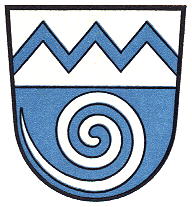Kirkel-Neuhäusel: Difference between revisions
Knorrepoes (talk | contribs) m (Text replacement - "===Origin/meaning=== The" to "===Origin/meaning=== The") |
Knorrepoes (talk | contribs) No edit summary |
||
| (12 intermediate revisions by the same user not shown) | |||
| Line 1: | Line 1: | ||
{{ | {| class="wikitable" | ||
|- style="vertical-align:top;" | |||
|[[File:kirkelne.jpg|center|350 px|alt=Wappen von {{PAGENAME}}/Arms (crest) of {{PAGENAME}}]] | |||
| | |||
<center>''' {{uc:{{PAGENAME}}}} '''</center><br> | |||
'''Country''' : Germany [[File:germany.jpg|60 px|right]]<br><br><br><br> | |||
'''State''' : [[Saarland]][[File:Saarland.jpg|60 px|right]]<br><br><br><br> | |||
'''District (Kreis)''' : [[Saarpfalz Kreis]][[File:saarpfal.kreis.jpg|60 px|right]]<br>(until 1974 [[Homburg (kreis)|Homburg]])<br><br><br> | |||
'''Incorporated into''':<br> | |||
* 1974 [[Kirkel]] | |||
{{#display_map:49.2845,7.2329|width=250|height=250|zoom=7}} | |||
|} | |||
{| class="wikitable" | {| class="wikitable" | ||
| Line 13: | Line 17: | ||
|- | |- | ||
|'''German''' | |'''German''' | ||
| | | In geteiltem Schild oben ein blauer dreispitziger Zickzackbalken, unten in Blau ein vom unteren rechten Schildrand aufsteigender silberner Schnirkel. | ||
|- | |- | ||
|'''English''' | |'''English''' | ||
| | | blazon wanted | ||
|} | |} | ||
| Line 24: | Line 28: | ||
The arms show in the chief the arms of the Lords of Kirkel in changed colours (originally red-silver), and the old village symbol, which has been used as the arms of the village until 1950. The strange symbol, which has been described as a snorkel, a snail or a spring, is known as the local symbol since the 18<sup>th</sup> century. It has been stated that the figure used to be a circle and thus be a canting symbol (Kirkel was translated in Latin as circulus). It has also been postulated that it represents the hill on which the village is built. It would thus originally have been some concentric circles. | The arms show in the chief the arms of the Lords of Kirkel in changed colours (originally red-silver), and the old village symbol, which has been used as the arms of the village until 1950. The strange symbol, which has been described as a snorkel, a snail or a spring, is known as the local symbol since the 18<sup>th</sup> century. It has been stated that the figure used to be a circle and thus be a canting symbol (Kirkel was translated in Latin as circulus). It has also been postulated that it represents the hill on which the village is built. It would thus originally have been some concentric circles. | ||
[[Civic Heraldry Literature - Germany|'''Literature''']]: Stadler, 1964-1971, 8 volumes. | |||
{{de}} | |||
{{media}} | {{media}} | ||
[[Category:German Municipalities K]] | [[Category:German Municipalities K]] | ||
[[Category:Saarland]] | |||
[[Category:Saarpfalz Kreis]] | [[Category:Saarpfalz Kreis]] | ||
[[Category:Homburg]] | [[Category:Homburg]] | ||
[[Category:Granted 1950]] | [[Category:Granted 1950]] | ||
Revision as of 12:19, 27 April 2024
|
Country : Germany State : Saarland District (Kreis) : Saarpfalz Kreis (until 1974 Homburg) Incorporated into:
|
| German | In geteiltem Schild oben ein blauer dreispitziger Zickzackbalken, unten in Blau ein vom unteren rechten Schildrand aufsteigender silberner Schnirkel. |
| English | blazon wanted |
Origin/meaning
The arms were granted on October 7, 1950.
The arms show in the chief the arms of the Lords of Kirkel in changed colours (originally red-silver), and the old village symbol, which has been used as the arms of the village until 1950. The strange symbol, which has been described as a snorkel, a snail or a spring, is known as the local symbol since the 18th century. It has been stated that the figure used to be a circle and thus be a canting symbol (Kirkel was translated in Latin as circulus). It has also been postulated that it represents the hill on which the village is built. It would thus originally have been some concentric circles.
Literature: Stadler, 1964-1971, 8 volumes.
This page is part of the German heraldry portal Deutsche Wappensammlung |
Heraldry of the World |
|
German heraldry:
|
Selected collector's items from Germany:
|
Contact and Support
Partners:
Your logo here ?
Contact us
© since 1995, Heraldry of the World, Ralf Hartemink 
Index of the site















